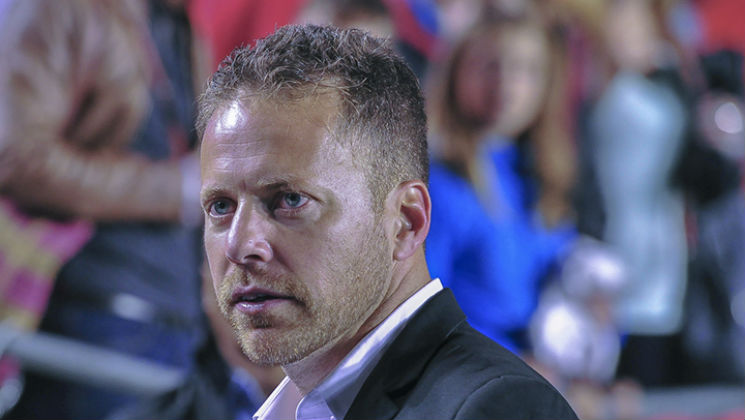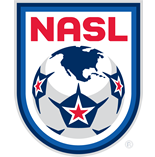Q&A With San Francisco Deltas Coach Marc Dos Santos

Photo credit: Steve Kingsman/Freestyle Photography
Marc Dos Santos owns a unique distinction among soccer coaches in North America: He took two different teams (Ottawa Fury FC and Swope Park Rangers) in two different leagues (the NASL and the USL) to championship finals in consecutive years – both in the New York/New Jersey metropolitan area, both ending in losses. The Montreal native spoke with Jack Bell of NASL.com about his philosophy and plans for the expansion San Francisco Deltas.
Bell: In San Francisco, you’re going to be building another team from scratch. What goes into your thinking?
Dos Santos: It’s a very simple way of thinking. If you keep it simple you have a lot of chances of succeeding. I almost became an expert. I remember in 2007 when Nick De Santis of the Montreal Impact gave me the first shot at building a team, the Montreal Impact B team.
Back then I built it with a model in my head. I took that to Ottawa. The first thing a coach must have when you build a club is a real model in your head. How do you want the club to play? What’s the identity? What’s the system you’re going to use?
And what do some people often do in expansion situations? They recruit No. 10’s, they recruit wingers, they recruit only one forward and then they say, wait a minute I want to play in a 4-4-2. So I don’t need a winger, I need more forwards. But now you have players on your squad who don’t have a relationship with the model you want to build or the team you want to build.
Bell: So you’re saying that sometimes new clubs will go out and grab a guy just because he’s out there?
Dos Santos: Yes. They’ll grab him, they’ll take him without thinking about the way they want to play. So then you end up with too many players at certain positions that you don’t want. So you end up playing in another system.
Some coaches say it’s better to get the best players possible and then, when you have the best players, you do a system of play around them. I believe in the opposite. And this is, I think, what has helped me, even with the Swope Park Rangers. You have the model first. What do you want your team to do in the offensive organization and transition to defense and in the defensive organization in the transition to offense?
When you write the model and you pick the system now you go after players to maximize that. When you do it that way this is what happens: Tomorrow if Player X or Player Y leaves the system, the model doesn’t leave. You lost Tommy Heinemann? Now you go after a forward that reflects the type of profile that you want in your model. I’m only giving an example with one player. That’s been the thing that’s given me a lot of success.
Bell: What kind of team do you envision for the San Francisco Deltas?
Dos Santos: When you hire me as a coach you hire a certain identity. I’m not a guy who says things just to get the love from the people. For example, I won’t say that San Francisco will be a possession team that presses high and has more of the ball than the opponent. This is what everyone wants to hear because this is the Barcelona way. But we all have to come back to earth. Two or three teams in the world play like that.
Me, I’m going to build a San Francisco team that is strong defensively because it’s my identity. They’re going to have the mental strength to go through things and be very, very good. We’re going to build a team that’s very dynamic and fast so when we win the ball in transition we will be fast and dynamic, because this is what I believe in. I believe that the soccer we’re seeing today, in 10 years will be faster and faster and faster because people and teams are more and more organized and you have to find a way to break them down. So I think the moment that they lose the ball, that’s the moment to exploit. So this is type of team San Francisco is going to be.
Bell: You’ve built a team in Ottawa, how is that different than now, especially with you just wrapping up a season with Swope Park Rangers?
Dos Santos: I arrived in Ottawa in July 2013 and we started play in April 2014. I was six months inside an office watching video. I’m like an octopus, don’t think I somehow haven’t started the process in San Francisco. We did already. We have some players already.
Bell: Signed or in the process or negotiation?
Dos Santos: We have some players already. People who know me know that I plan ahead.
Bell: So you left Canada and moved to Kansas City. What went into your thinking?
Dos Santos: I wanted to learn. Look there’s no secret, I’m 39 years old and one day I want to coach at the highest level in North America, whether that’s national team, whatever. One day I want to do that for sure. I wanted to learn about how MLS operated, to learn about the salary cap, the movements, the relationship between the B team and the first team. And I wanted to learn on a club that, for me, in the last five years was in the top three. Sporting is an incredible organization where [coach] Peter Vermes and his staff built. He’s an incredible builder, for a lot of things he did he deserves one day to be the [U.S.] national team coach.
And I had the possibility of being every day with him. The office I was working from was five meters from him, my relationship with Peter was daily. I knew that would benefit me to grow as a coach. But I also realized that it wasn’t what I wanted to do because a B team is very different in the dynamics. The B team is like a bridge: there’s an academy and there’s an A team, the players moving up and back across the bridge. It’s your team but it’s not really your team. Some players go through the bridge and out and you manage that. It gives you great experience, but you don’t feel it’s your blood, your baby.
Peter gave me a lot of freedom, yes I was in charge. But if Peter would say these five players have to play it’s just natural to play them. I’m not going to bench them. The dynamic is different. That’s maybe the thing I liked less. I went to Peter’s office and told him I have to move on.
Bell: When was that?
Dos Santos: I decided that after things were moving forward with San Francisco, toward the end of August. They have a group of consultants that knew my work in Brazil and knew me from Ottawa. Brian [Helmick, the chief executive of the Deltas] has a lot of good values and he didn’t want to go after another coach in the NASL. He’s a fair play guy. I remember being at a game in Portland with Swope Park and I was three hours on Skype the day before the game with Brian talking about life and soccer. And I thought, that’s the level I want to be. Then I went to Peter and we had a long talk. I was under contract, but I think Peter really respects people who have the ambition of moving on. Peter didn’t do anything to hold me back. He said ‘Marc we want you, but if it’s better for you, you go.’
Bell: You must feel a great sense of accomplishment after taking Ottawa to The Championship Final last year.
Dos Santos: The NASL is still growing. Ottawa is proof that if you pick the right players inside a model of play then you’re going to be very competitive and very good. I felt the Ottawa team last year, we would do well in the U.S. Open Cup in our best moment. Because a player like [Colin] Falvey showed great leadership, from there he’s the captain of Indy. Rafa [Alves] is the captain of Ottawa. Ryan Richter is with the New York Cosmos. Mason Trafford is in Miami, Richie Ryan is the best in his position. Sinisa [Ubiparipovic] went to Indy, Tommy [Heinemann] to Tampa Bay.
The NASL in the core has more experience and quality players than the USL. You’re going to see quality games at a higher level than in the USL. I’m a soccer guy and I’m passionate that the sport will improve in the Canada and the U.S.
Bell: You mentioned the game growing in Canada. As a Canadian soccer guy, do you one day hope to become the coach of the national team?
Dos Santos: I have been asked that question so many times. I answer that I’m a person of faith, I’m a Christian. It’s not important, but I believe in God, my rock is that. And I believe God always puts you in the right place at right time. Do I feel in my heart that one day that opportunity, that possibility with come? I do. It will be 100 percent somewhere down the line. I don’t have any anxiety for it to happen now. When the opportunity comes I’m not going to say no to it. It’s where my kids were born, I was born in Montreal. I would never say no to an opportunity like that.
Bell: What do you think will be your biggest challenge in San Francisco?
Dos Santos: The biggest challenge in Year 1 is the competition. In this league the last team can beat the first.
Bell: Do you consider yourself to be a players’ coach?
Dos Santos: It’s funny, because this year at Swope Park Rangers was different for me because most of the players are young guys. At Ottawa, we had many experienced veterans, guy with families and other issues. You always want to be aware of that and act with their best interests in mind.
But, for me, the greatest thing would be when I’m 70 and playing checkers in Miami with my wife to have one of my former players come up and hug me and thank me. That’s what would bring me pleasure, to have an impact as a man, not only as a soccer coach. Because for me, there is more to life than only soccer. There has to be.

